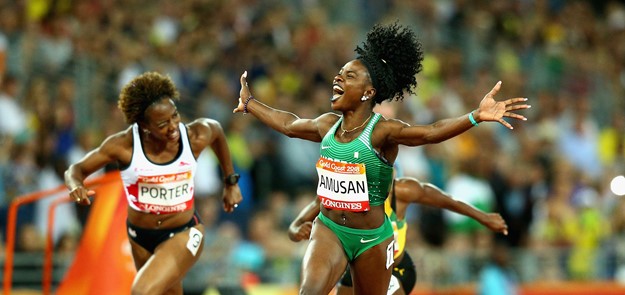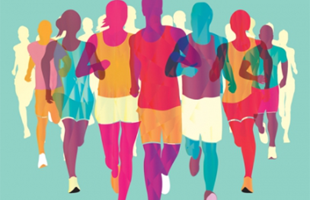
International Women's Day 2022: Climate change places additional barriers on women and girl's participation in sport
International Women's Day 2022: Climate change places additional barriers on women & girl's participation in sport, we must not leave them behind
As we mark International Women’s Day this year, we’re increasingly reminded that the effects of climate change are already being felt in the field of sport. Like other areas of life, the climate crisis will disproportionally impact women and girls, and their ability to play sport. The UN’s Sport for Climate Action initiative highlights how extreme weather events like high temperatures, heat waves, droughts, storms, floods, hurricanes, and wildfires can cause significant damage to sports facilities and infrastructure, and make accessing some sport disciplines extremely difficult. This also translates to athletes and fans experiencing climate-related cancelation of sporting events, shortened seasons, and restrictions in relation to the time of the day and of the year for when events can be hosted without threatening athletes, coaches, officials and fans’ physical and mental health and well-being due to climate-related concerns.
While these experiences impact the whole sports community, as we have recently seen in the context of the COVID-19 pandemic, whenever there is scarcity of time, space, money and other resources, the system of sport tends to prioritise men’s sport. Indeed, during the pandemic, many more women’s leagues were forced to stop operations, and disproportionately larger bailouts were dedicated to saving men’s sport and supporting male athletes in comparison to what was provided for women. As climate change will continue to impact sport as we know it, a significant change in sports culture is needed to ensure women and girls aren’t left behind.
If the challenges are hard for elite sport, they can be even more devastating at the community level and particularly in the Global South. For example, it is estimated that women and girls worldwide devote 200 million hours each day to collecting water. As climate change causes growing scarcity in the supply of water, women and girls will need to walk longer distances to fetch the water their families need for survival– and they will have even less time available for engage in other activities, including sport.
Even if a girl is born in a very supportive family, that values the life skills that sport can bring to their daughter, if the usual sports field is no longer available or access is limited due to extreme weather conditions, she will have less access to sport facilities which will likely prioritise access for boys. Such limited access is all too often linked to cases of sexual abuse and harassment of girls as they transit between their homes and distant sports fields. Girls and their families, understandably, do not want to take the risk. We also know that the climate crisis is fuelling greater economic and social insecurity, including rising levels of hunger in many vulnerable communities across the world. As was observed during the COVID-19 pandemic, in such levels of stress, domestic and sexual violence rates tend to increase. Rates of unplanned pregnancy among adolescent girls and child marriage also rise, as this is often the only alternative found by a family to ensure that their girl child, or themselves, will have food, water, and shelter. Girls facing high levels of vulnerability at home could be more susceptible to sexual exploitation and harassment at sports facilities, sometimes in exchange for food and protection. All these intensely challenging situations imposed on girls hinder their participation in sport.
The wide range of serious threats to women and girls is the reason for us to act now. A gender lens is critically important in building greater awareness of the multiple adverse impacts of the climate crisis on women and girls. A focus on gender is also key for sports organisations and governments in strengthening their climate change mitigation and adaptations policies, practices, and procedures.
In ongoing efforts to address the climate crisis, we can’t forget the lived experiences and voices of women and girls. Their knowledge is precious and can help identify smart and effective solutions for the most pressing challenges. They must be able to participate in debates in a meaningful way and be able to exercise their agency and leadership as we take next steps towards a more hopeful future. And as we move forward, our collective responsibility is to ensure that participation in sport never becomes something that is outside a girl’s imagination and reach.



